Last Friday was International Rural Women’s Day.
The Department of Agriculture, Food and the Marine tweeted: “Our agri-food strategy for the next decade, #FoodVision2030, supports an enhanced role for women in the agri-food sector”.
I searched for the word “women” in the document to see what the Government is proposing. It is there, but action must follow for the proposals to have any weight.
Words are the easy part when initiating change, but delivering on those words is more difficult. The Women in Agriculture Stakeholders Group (WASG) has not given much credence to the Minister’s comments on supporting women, calling for the words to be backed by policy.
Needless to say, it is not just the Minister who needs to lead in this area
When questioned on his commitment to female farmers recently by WASG, Minister McConologue acknowledged the historical legacy that has beset women saying we need to look at how we can change culture and attitudes in relation to young women so they are encouraged into agriculture in the same way that young men are.
Needless to say, it is not just the Minister who needs to lead in this area. The country’s largest farm organisation, the IFA, is struggling to implement the recommendations of a committee (which I chaired back in 2019) to foster a more diverse leadership in the organisation.
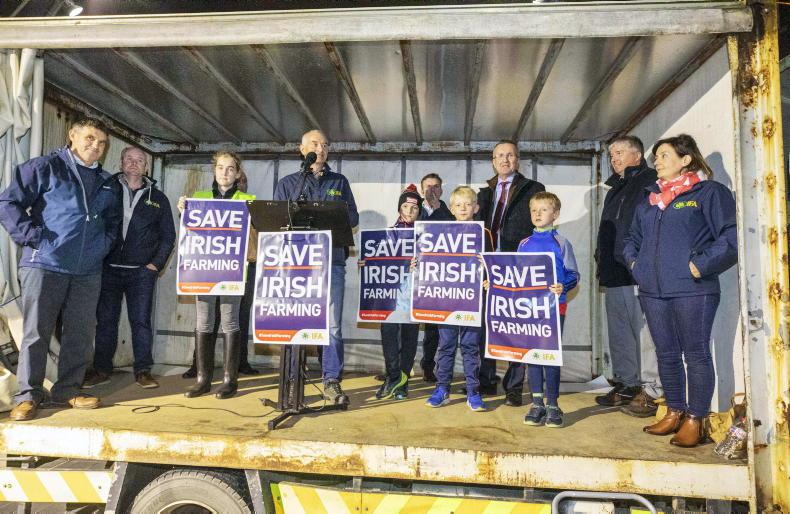
IFA Cork central chair Harold Kingston speaks to the large rally on Grand Parade Cork city. \ Finbarr O’Rourke
There is politics at play of course, with the self-interest of a few steering the ship into choppy waters. But we will discuss that again when the crunch decision is made by the organisation as to whether or not to support youth and women to enter agri politics.
Speaking of the IFA, Katherine O’Leary this week talks about the recent farmer protests.
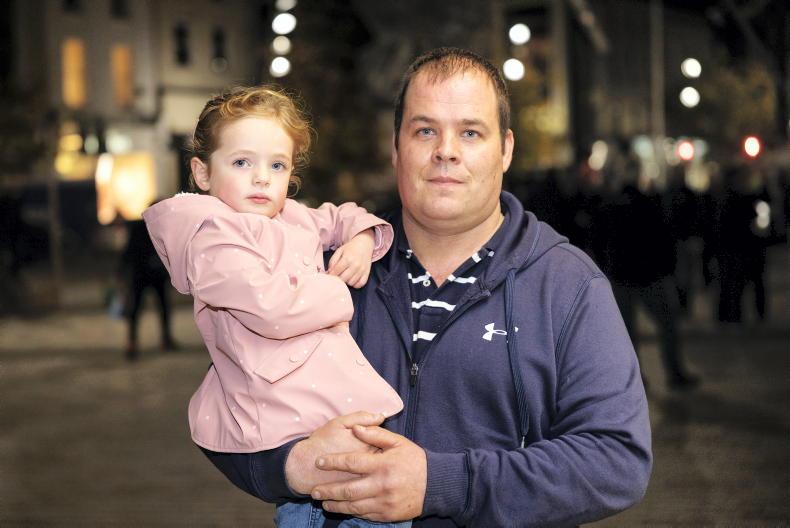
David and Leah Myers from Kildorrery, Co Cork, were part of the 3,500 farmers that took to the streets of Cork city in the IFA nationwide protests.\ Donal O'Leary
Although she noted that there were a lot of “grey heads” in attendance, she also calls out how many young people were out in force. That is what struck me from the photos that circulated on social media, families with young children, girls and boys, who want a future in agriculture. With that thought in my head, a line from the FoodVision 2030 document jumped out at me: “When it comes to developing a long-term sustainable future for primary producers, addressing generational renewal and gender balance will be essential, to ensure that the vital contribution of young people and women is acknowledged and supported.” Government and farm organisations please take note.
As the old Chinese proverb goes: “The best time to plant a tree was 20 years ago. The second-best time is now.” Farm women’s role should have been recognised years ago but recognising it now can be best second. If the Minister starts now by convening the promised National Dialogue for women in agriculture, we would love to have him as our keynote speaker at Women and Agriculture 2022.
It is all well and good to say what everyone else should be doing, so this week we turn that lens on ourselves at Irish Country Living. What should we be doing to support women? This is the last week of our Women & Ag Conference speaker summary but W&A 2022 is coming fast. This could be an opportunity to reinvent our conference.
So can you please tell us what issues are most pertinent to you? Who would you like to hear from? What issues do you want us to tackle? Please log on to www.ifj.ie/WandA to share your views. Never let it be said that we live in glasshouses.
Read more
Mental health challenges when being ‘the farmer’ is seen as the only option
Editorial: are data centres and cows Ireland’s natural advantage?
Last Friday was International Rural Women’s Day.
The Department of Agriculture, Food and the Marine tweeted: “Our agri-food strategy for the next decade, #FoodVision2030, supports an enhanced role for women in the agri-food sector”.
I searched for the word “women” in the document to see what the Government is proposing. It is there, but action must follow for the proposals to have any weight.
Words are the easy part when initiating change, but delivering on those words is more difficult. The Women in Agriculture Stakeholders Group (WASG) has not given much credence to the Minister’s comments on supporting women, calling for the words to be backed by policy.
Needless to say, it is not just the Minister who needs to lead in this area
When questioned on his commitment to female farmers recently by WASG, Minister McConologue acknowledged the historical legacy that has beset women saying we need to look at how we can change culture and attitudes in relation to young women so they are encouraged into agriculture in the same way that young men are.
Needless to say, it is not just the Minister who needs to lead in this area. The country’s largest farm organisation, the IFA, is struggling to implement the recommendations of a committee (which I chaired back in 2019) to foster a more diverse leadership in the organisation.

IFA Cork central chair Harold Kingston speaks to the large rally on Grand Parade Cork city. \ Finbarr O’Rourke
There is politics at play of course, with the self-interest of a few steering the ship into choppy waters. But we will discuss that again when the crunch decision is made by the organisation as to whether or not to support youth and women to enter agri politics.
Speaking of the IFA, Katherine O’Leary this week talks about the recent farmer protests.

David and Leah Myers from Kildorrery, Co Cork, were part of the 3,500 farmers that took to the streets of Cork city in the IFA nationwide protests.\ Donal O'Leary
Although she noted that there were a lot of “grey heads” in attendance, she also calls out how many young people were out in force. That is what struck me from the photos that circulated on social media, families with young children, girls and boys, who want a future in agriculture. With that thought in my head, a line from the FoodVision 2030 document jumped out at me: “When it comes to developing a long-term sustainable future for primary producers, addressing generational renewal and gender balance will be essential, to ensure that the vital contribution of young people and women is acknowledged and supported.” Government and farm organisations please take note.
As the old Chinese proverb goes: “The best time to plant a tree was 20 years ago. The second-best time is now.” Farm women’s role should have been recognised years ago but recognising it now can be best second. If the Minister starts now by convening the promised National Dialogue for women in agriculture, we would love to have him as our keynote speaker at Women and Agriculture 2022.
It is all well and good to say what everyone else should be doing, so this week we turn that lens on ourselves at Irish Country Living. What should we be doing to support women? This is the last week of our Women & Ag Conference speaker summary but W&A 2022 is coming fast. This could be an opportunity to reinvent our conference.
So can you please tell us what issues are most pertinent to you? Who would you like to hear from? What issues do you want us to tackle? Please log on to www.ifj.ie/WandA to share your views. Never let it be said that we live in glasshouses.
Read more
Mental health challenges when being ‘the farmer’ is seen as the only option
Editorial: are data centres and cows Ireland’s natural advantage?






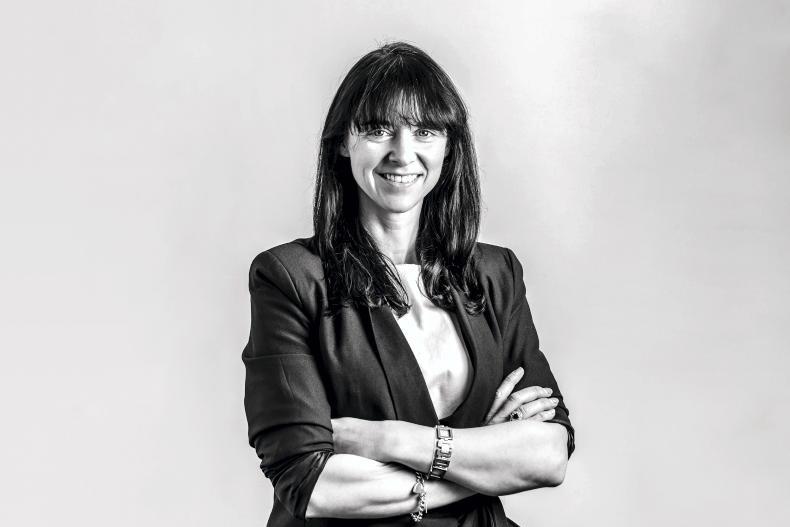
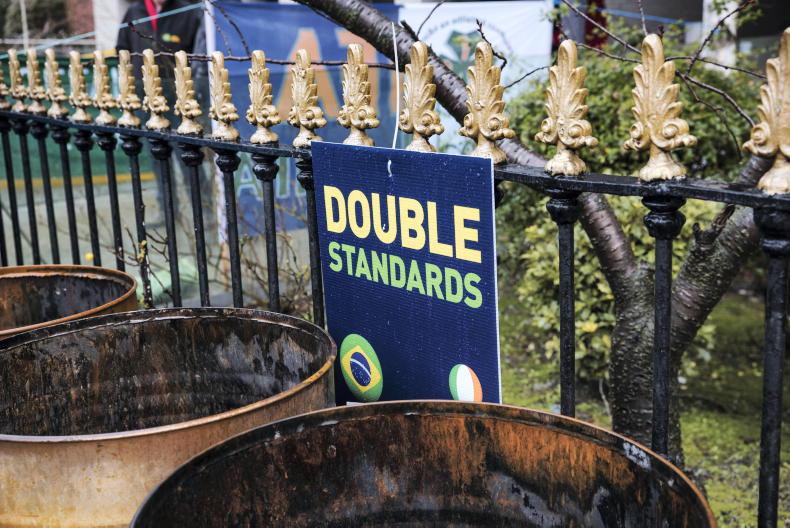


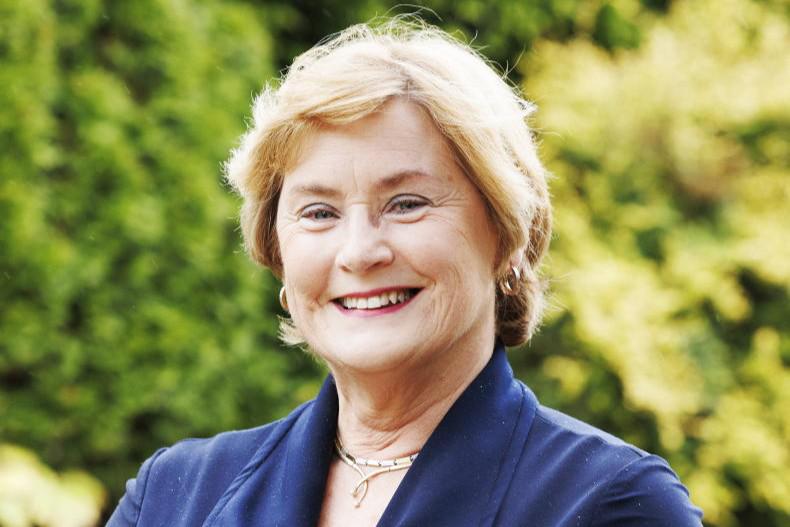
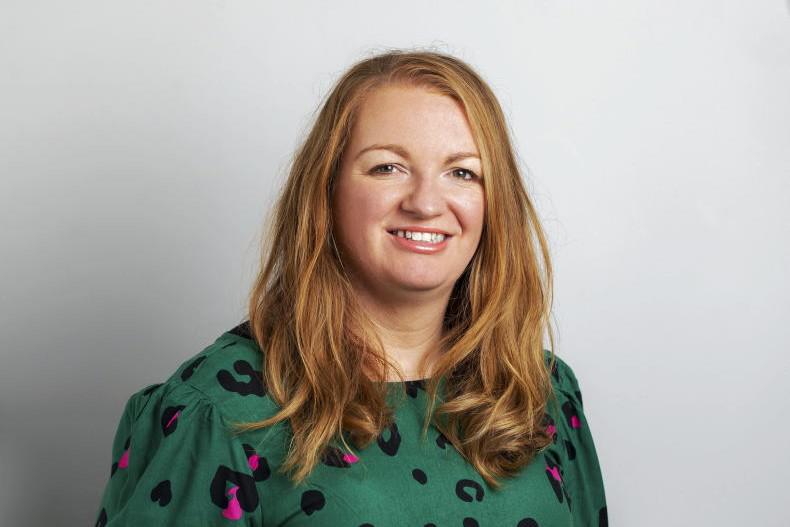
SHARING OPTIONS